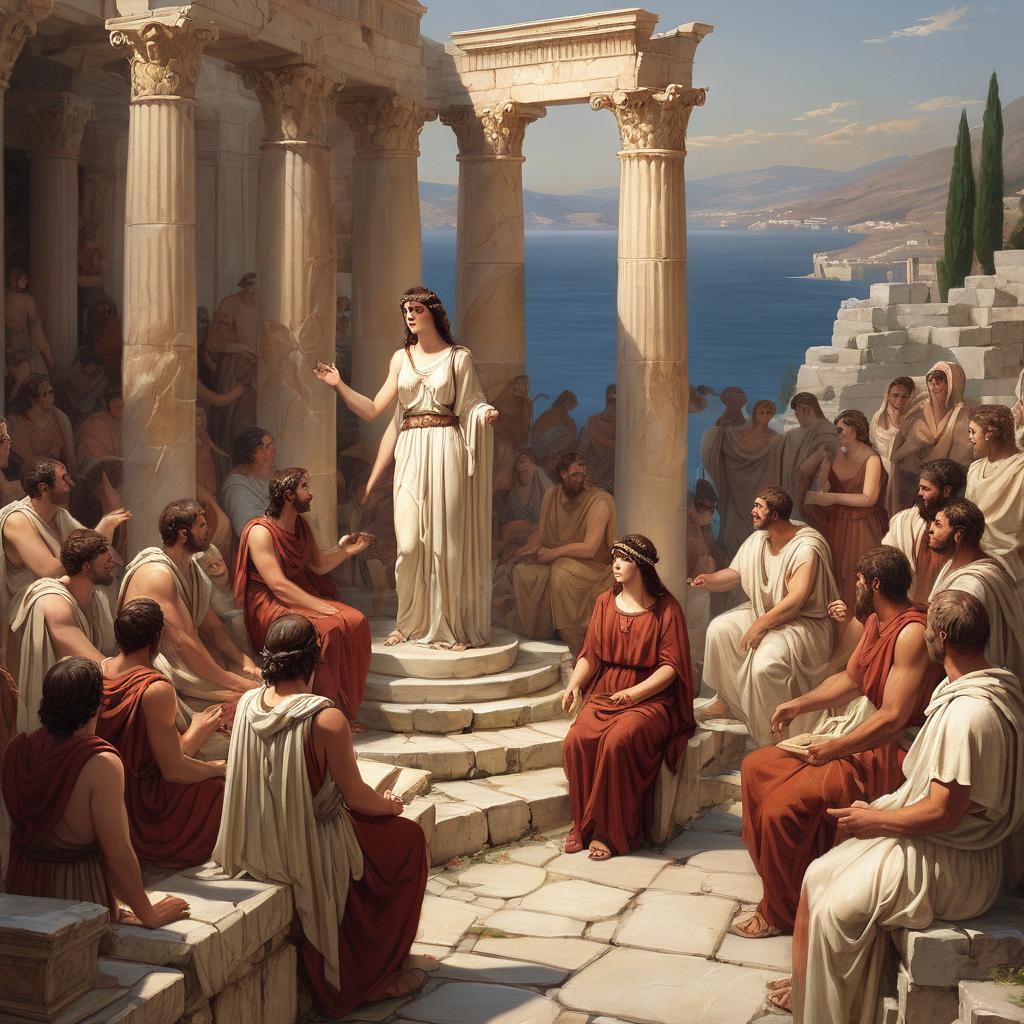The Delphic Oracle: Ancient Wisdom for Modern Times

The Delphic Oracle, nestled in the sanctuary of Apollo at Delphi in ancient Greece, was one of the most revered spiritual institutions of the classical world. Established around the 8th century BCE, this oracle was believed to be a conduit for the god Apollo, offering guidance and prophecies to those seeking answers. Pilgrims from all walks of life, including kings and commoners, traveled to Delphi to consult the Pythia, the high priestess who served as the mouthpiece of Apollo.
A Brief History of the Delphic Oracle
Delphi was considered the center of the world in Greek mythology, marked by the Omphalos stone. The Pythia, chosen from the local women, would enter a trance-like state induced by vapors from a chasm beneath the temple, delivering cryptic messages that priests interpreted. These prophecies influenced significant decisions in the ancient world, from political strategies to personal dilemmas.
The oracle’s influence waned with the rise of Christianity and the decline of pagan practices, eventually ceasing operations in the 4th century CE. Despite its end, the Delphic Oracle left an enduring legacy in Western culture, symbolizing the quest for divine wisdom and guidance.
Seeking Modern-Day Oracles
In today’s world, the notion of consulting an oracle might seem archaic, yet the fundamental desire for guidance and insight remains unchanged. Modern equivalents to the Delphic Oracle can be found in various forms, often rooted in technology, psychology, and spirituality.
Psychotherapy and Counseling: Therapists serve as modern oracles, helping individuals navigate their inner worlds. Through conversation and reflection, they guide people in understanding their emotions, behaviors, and life choices.
Life Coaches and Mentors: These professionals offer practical advice and strategies to help individuals achieve personal and professional goals. Their guidance can be seen as a form of modern prophecy, tailored to the individual’s unique circumstances.
Artificial Intelligence and Predictive Analytics: In an era dominated by data, AI systems analyze vast amounts of information to predict outcomes and offer recommendations. From financial investments to healthcare decisions, these tools act as contemporary oracles, providing insights based on patterns and probabilities.
Spiritual Advisors and Intuitive Readers: Many people still seek guidance from those who claim to have spiritual or intuitive insights. Tarot readers, astrologers, and other spiritual advisors offer advice that resonates with the ancient tradition of seeking divine wisdom.
Personal Reflection and Meditation: For those inclined towards introspection, meditation and mindfulness practices can serve as a means of accessing inner wisdom. Techniques like journaling and visualization help individuals uncover answers from within, echoing the introspective nature of consulting the oracle.
The Relevance of the Delphic Maxims
The Delphic Oracle was also known for its succinct aphorisms, known as the Delphic Maxims. Phrases like “Know thyself” and “Nothing in excess” encapsulate timeless wisdom. In the modern context, these maxims encourage self-awareness and balance, values that are crucial in navigating the complexities of contemporary life.
Conclusion
While the physical presence of the Delphic Oracle belongs to history, its essence persists in the myriad ways we seek guidance today. Whether through professional advice, technological tools, or spiritual practices, the quest for insight and clarity remains a fundamental human endeavor. By recognizing and utilizing these modern “oracles,” we can continue to find direction and meaning in our lives, just as the ancients did at Delphi.


